Deep within the sprawling city of Maiduguri, the capital of Borno State, lies the El-Miskin camp, housing hundreds of internally displaced persons (IDPs) who fled their various communities as a result of the Boko Haram conflict in northeastern Nigeria. For over a decade, they have endured dire conditions and have felt neglected by the government and the rest of the world.
One of them is Jummai Nuhu, a 51-year-old woman, who told HumAngle that she and her relatives ran away from Baga, a community repeatedly devastated by deadly attacks.
Though she recalls that the early days in the camp offered a flash of hope, with the provision of food and water by different non-governmental organisations, such no longer happens, and survival has become the central concern of life in El-Miskin.
“When we first came, Allah blessed us with help,” Jummai said. “But for two years now, there has been nothing. My children go out to beg for food, and it breaks my heart, but what can we do? We have no food to give them.”
Bello Ibrahim, a 33-year-old resident at El-Miskin camp, corroborated Jummai’s account of the constant struggle against hunger. “We used to farm before the insurgency, but now we can’t even go to our lands. There’s no food here, no way to provide for our families. The only thing we do is go to the bush and cut trees to sell as firewood.”
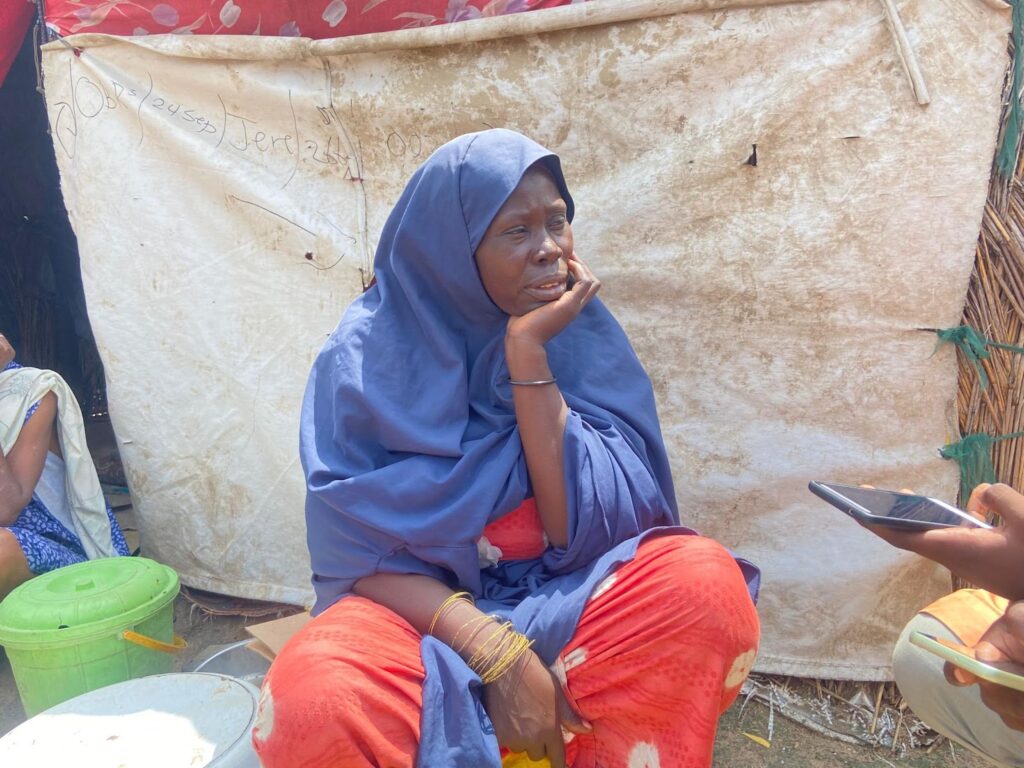
“We have no proper shelter. My room is held together by rags and tattered canopy,” she added, pointing to the worn-out structure. The government said they would return us to our towns, but it’s been years, and we are still here suffering.”
Several IDPs who spoke to HumAngle say the situation worsens when it rains, as many are forced to stand through the night to avoid being soaked.
The Elmiskin IDP camp is an unofficial camp, however. It is neither recognised by the government nor authorised by it. The Borno State government has also closed all its official camps since May 2021 and resettled the IDPs to their original villages and, in some cases, other villages. Unofficial camps rarely receive help from authorities.
Lack of basic facilities
Also, the lack of adequate toilet facilities forces the IDPs to engage in open defecation, a pressing environmental challenge in urban and rural areas of the country.
According to Nigeria’s Minister of State for Environment, Izhaq Adekunle Saleko, 48 million people still practice open defecation, and 159 million lack WASH (Water, Sanitation, and Hygiene) facilities. The IDPs at El-Miskin camp are part of this statistic.
Bello Ibrahim explained that the limited toilet access turns a basic necessity into a daily struggle. “Sometimes you wait 30 minutes just to use a toilet,” he added.
His voice and expression betrayed frustration as he added, “The government never comes here. We see them helping people in the city, but they don’t even visit us. It is shameful. We are citizens, too, but we have been left to fend for ourselves. If the government can help others, why not us?”
Despite a 2010 United Nations General Assembly resolution urging governments and international organisations to provide safe, clean, accessible and affordable drinking water and sanitation, the displaced residents at El-Miskin camp lack access to potable water.
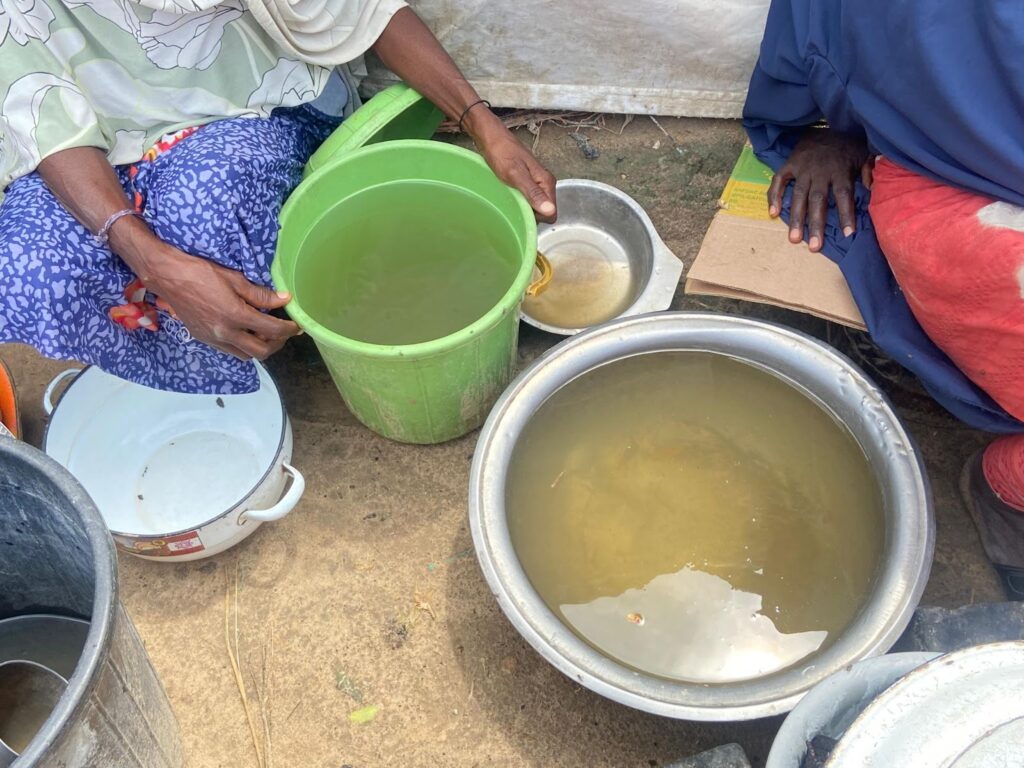
“We save rainwater when we can,” said Jummai, holding a container of murky rainwater. “When we are unable to do so, we are forced to buy water that is often unsafe for drinking, but we have no choice.”
Healthcare is another critical void. With no access to medical services, most residents resort to self-medication.
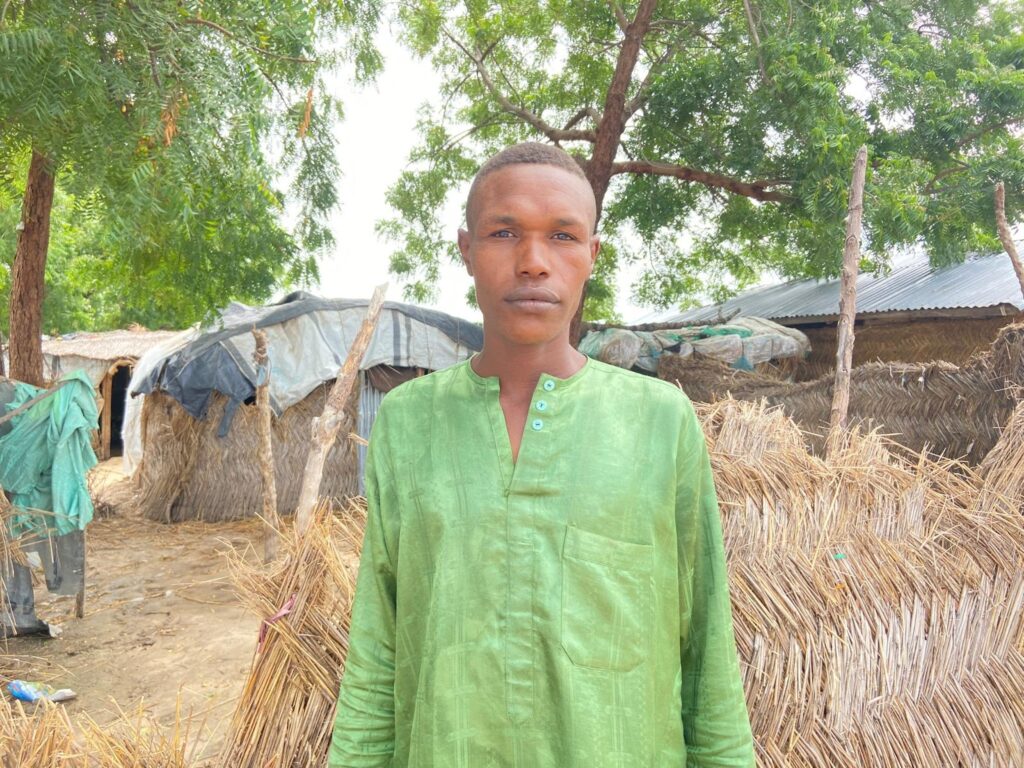
Young IDPs engage in substance use
The lack of schools and jobs has left young IDPs vulnerable to substance use and petty crime. One of them, Hussaini Ali, a 30-year-old young man, admitted that boredom and despair in the camp led him to drugs.
“I started using drugs because we have nothing to do. It takes your mind away from the suffering for a little while,” he told HumAngle. “But if we had work, if we had something to do, we wouldn’t waste our lives like this.”
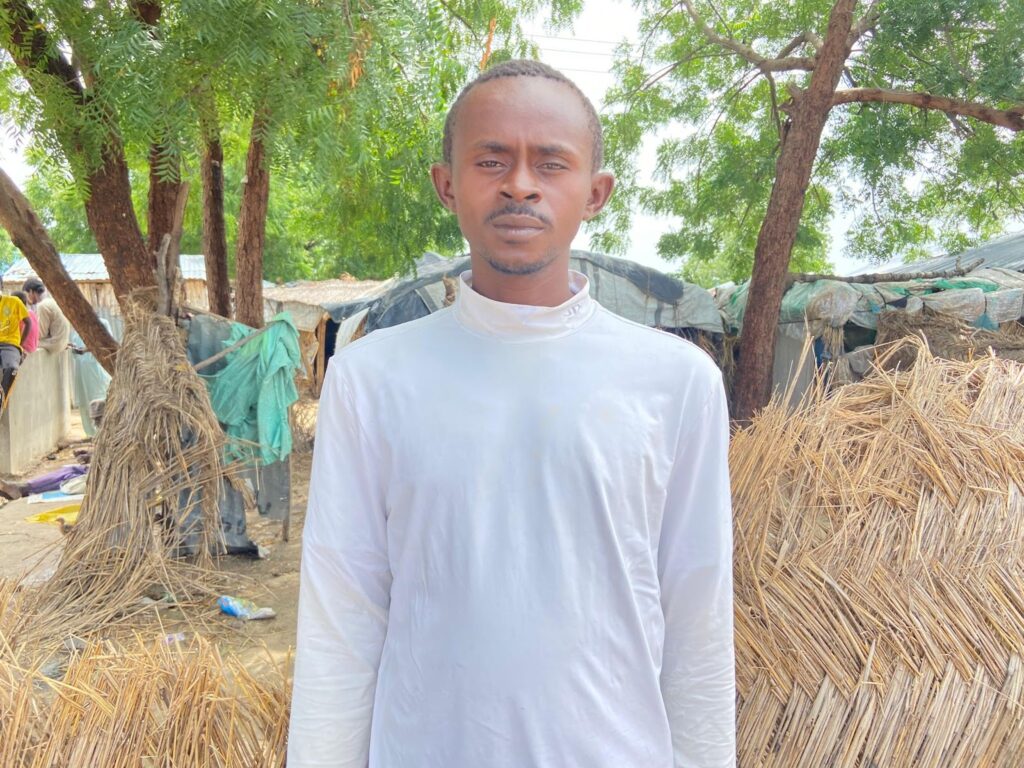
For 13-year-old Aisha Bukar, the dream of becoming a doctor feels impossible. “I haven’t gone to school in years,” she said quietly. “My family cannot afford it.”
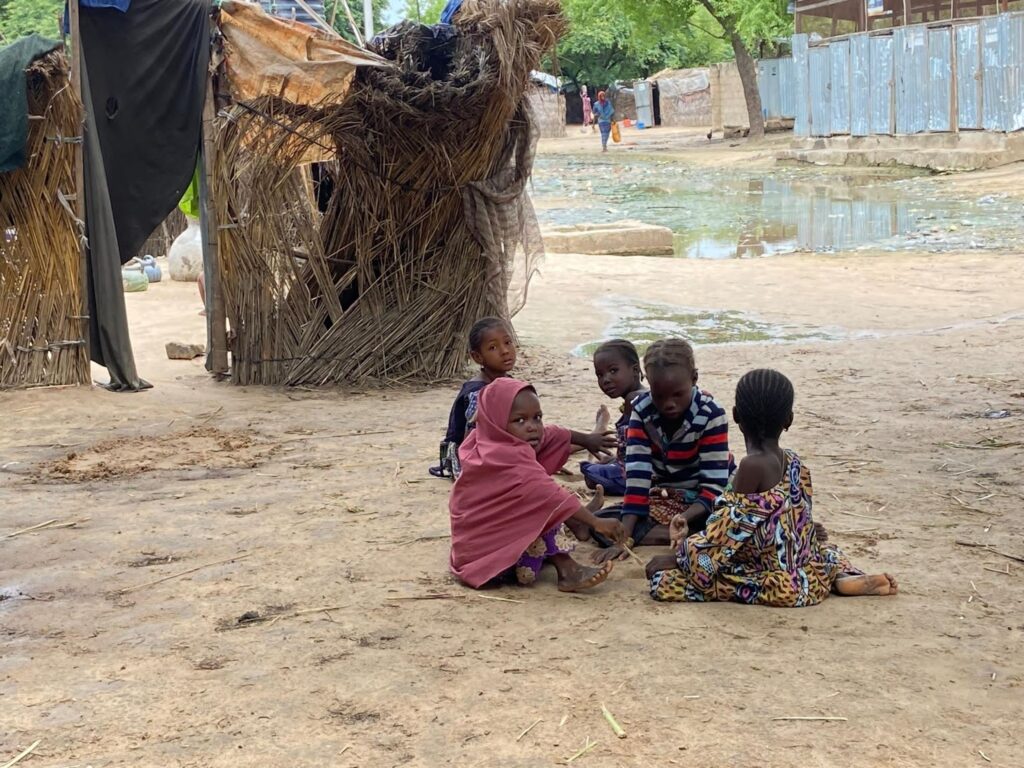
‘Neglected after devastating floods’
Even after the recent flooding that devastated Maiduguri, residents said the camp did not receive any attention from authorities. Bulama Bukar, one of the leaders at the camp, painted a stark picture of abandonment.
“The flood swept away our shelters, leaving us with nothing,” Bulama recalled. “We spent sleepless nights on the streets, pleading for help that never came. The government’s absence was a harsh reminder that we’re forgotten. We were left to face the ruins alone. No aid, no sustenance, no hope.”
“We need food, water and schools for our children. We need healthcare and toilets. We are suffering, and we need help,” Bulama pleaded.
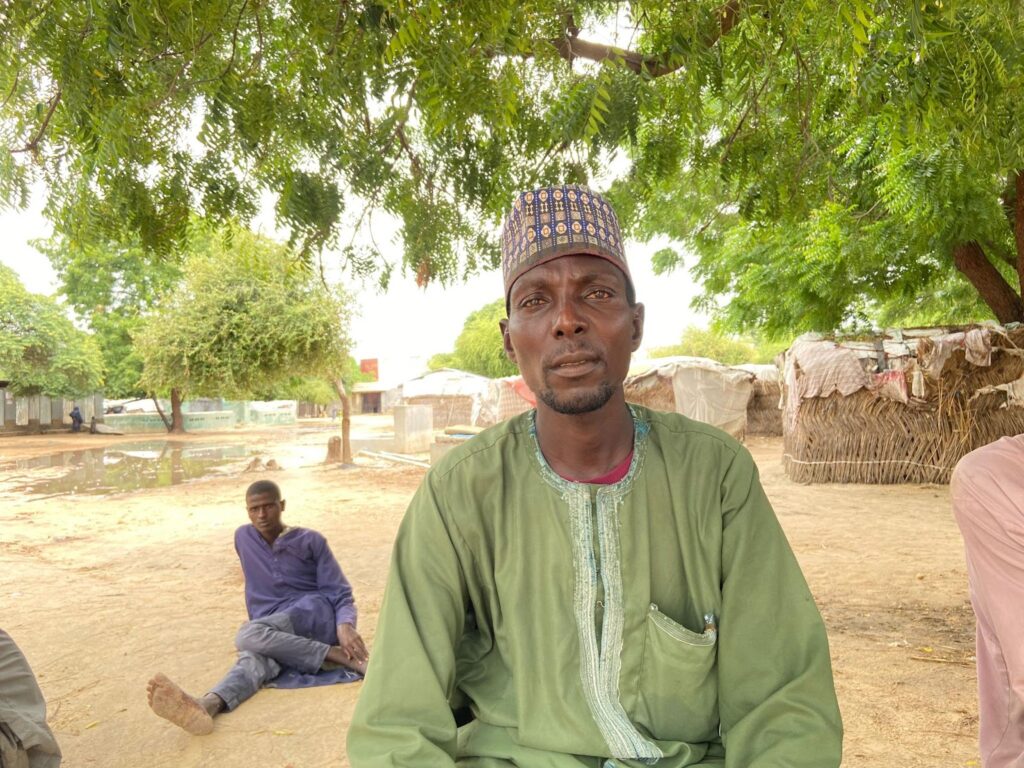
When asked how the residents of El-Miskin camp manage to survive without government support, Bulama explained that they depend on the goodwill of individuals and the remnants of previous aid efforts. However, he appealed to the Borno State government for urgent assistance, saying, “Please, hear our voices. Don’t forget us.”
Efforts to get a response from the Borno State Emergency Management Agency (SEMA) were unsuccessful. Several calls, text messages, and WhatsApp messages requesting comments on the situation at El-Miskin went unanswered. During a visit to SEMA’s headquarters in Maiduguri, HumAngle learnt that the Director-General was unavailable. At the same time, other officials declined to speak, stating they were not authorised to address the press.
The El-Miskin IDP camp in Maiduguri, Nigeria, houses hundreds of people displaced by the Boko Haram conflict, facing dire living conditions and neglect from government authorities. Residents like Jummai Nuhu and Bello Ibrahim report shortages of food, water, proper shelter, and basic sanitary facilities, relying on meager resources and efforts such as selling firewood to survive.
Despite international calls for clean water and proper sanitation, the camp remains without these essentials, forcing inhabitants into open defecation and unsafe water consumption.
Healthcare is scarce, pushing residents towards self-medication, and a lack of educational and employment opportunities drives youth to substance abuse.
Recent flooding worsened conditions, yet government support remains absent, amplifying the camp’s need for urgent aid. Attempts to contact the Borno State Emergency Management Agency yielded no response.
